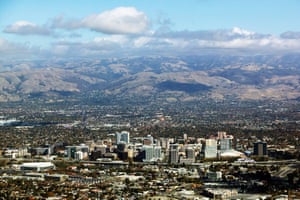http://indianexpress.com/article/india/india-news-india/probing-pathankot-attack-how-wires-got-crossed-in-delhi/
The Indian Express investigation shows, points who took what decision – and who did not in the Pathankot air base attack.
Pathankot/ Chandigarh/ New Delhi Updated: Jan 9, 2016,
(Reported by Deeptiman Tiwary, Sagnik Chowdhury, Pranav Kulkarni and Praveen Swami in New Delhi)
ON Christmas Day in 1999, an Indian Airlines flight was hijacked soon after it took off from Kathmandu, by terrorists seeking the freedom of over a dozen terrorists incarcerated in Indian jails, the most important of them Masood Azhar, the cleric who would go on to found the Jaish-e-Muhammad. The Cabinet Secretary ordered the Crisis Management Group, made up of key Secretaries to the Government of India, to be summoned.
The team was left to improvise as best it could. Foreign Secretary Lalit Mansingh, one insider recalls, tried calling numbers for police and airport decision-makers in Amritsar, where the plane had stopped to refuel. The numbers had changed, they discovered — and by the time new ones were found, it was too late. Punjab Police officers, meanwhile, had been asking for authorisation to block the aircraft’s exit from the parking bay, and attempt a storming — a task that they would have accomplished with ease, since the terrorists had no automatic weapons on board at that stage. The authorisation, though, never came.
The memory of that affair, say those who have worked with Ajit Doval, still haunts the National Security Advisor. It was his task, along with his Intelligence Bureau colleague Nehchal Sandhu, the Foreign Service’s Vivek Katju, and the Research and Analysis Wing’s Anand Arni, to negotiate the hostage swap — handing over men he had helped track down and arrest.
“In a long-gone age of English cricket,” an acquaintance recalls, “those who took to the field were divided into ‘gentlemen’ amateurs, and professional ‘players’. Doval was a player.”
Pathankot/ Chandigarh/ New Delhi Updated: Jan 9, 2016,
(Reported by Deeptiman Tiwary, Sagnik Chowdhury, Pranav Kulkarni and Praveen Swami in New Delhi)
ON Christmas Day in 1999, an Indian Airlines flight was hijacked soon after it took off from Kathmandu, by terrorists seeking the freedom of over a dozen terrorists incarcerated in Indian jails, the most important of them Masood Azhar, the cleric who would go on to found the Jaish-e-Muhammad. The Cabinet Secretary ordered the Crisis Management Group, made up of key Secretaries to the Government of India, to be summoned.
The team was left to improvise as best it could. Foreign Secretary Lalit Mansingh, one insider recalls, tried calling numbers for police and airport decision-makers in Amritsar, where the plane had stopped to refuel. The numbers had changed, they discovered — and by the time new ones were found, it was too late. Punjab Police officers, meanwhile, had been asking for authorisation to block the aircraft’s exit from the parking bay, and attempt a storming — a task that they would have accomplished with ease, since the terrorists had no automatic weapons on board at that stage. The authorisation, though, never came.
The memory of that affair, say those who have worked with Ajit Doval, still haunts the National Security Advisor. It was his task, along with his Intelligence Bureau colleague Nehchal Sandhu, the Foreign Service’s Vivek Katju, and the Research and Analysis Wing’s Anand Arni, to negotiate the hostage swap — handing over men he had helped track down and arrest.
“In a long-gone age of English cricket,” an acquaintance recalls, “those who took to the field were divided into ‘gentlemen’ amateurs, and professional ‘players’. Doval was a player.”

